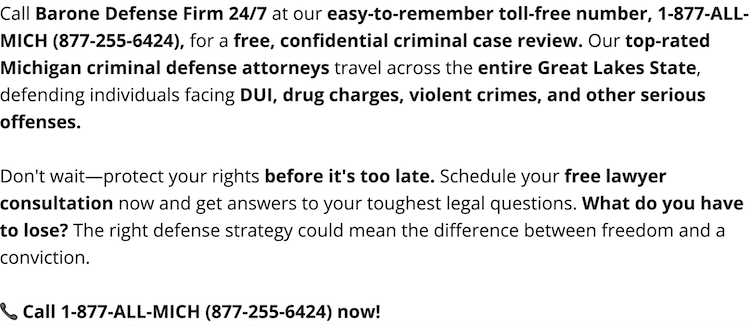Federal Forgery
As a society, people rely heavily on legitimate and trustworthy documents to conduct transactions, enforce contracts, identify themselves, and for many other purposes. Thus, when someone falsifies a document with the intent to defraud or deceive, it is treated as a serious crime—both at the state level and, in some instances, at the federal level as well.
Forged documents can have far-reaching consequences for governments, political entities, businesses, and individuals alike. Forgery is considered a felony offense in all 50 states and by the federal government. The penalties range may include jail time, fines, and/or probation.
If you have been charged with a federal felony offense, contact a Michigan federal forgery lawyer immediately. An experienced federal fraud attorney could help guide you through your legal options and protect your best interests throughout the process.
What is Considered Forgery in Michigan?At its most basic level, forgery involves producing, modifying, using, or possessing a false writing with the intent to commit fraud. This can include signing someone else's name on a check or altering a legal document. When the forged document is currency, it is also known as counterfeiting.
There are several legal elements to proving forgery:
- The individual must either produce, alter, use, or possess a false writing
- The false writing must have legal significance
- The writing must be untrue or materially altered
- The individual must have the intent to defraud
The last element protects those who unknowingly deal with or are in possession of a forged writing. For more information about what is considered forgery, reach out to a Michigan federal forgery lawyer.
Federal Forgery LawsWhile most forgery crimes are prosecuted at the state level, there are certain circumstances where someone can be charged with a federal offense for forging a document. For example, forgery will automatically become a federal offense if the forged document crosses state lines or the forgery took place in multiple states.
Other types of specific federal forgery offenses include identity theft, forging immigration documents, and counterfeiting money. Title 18, Chapter 25 of the U.S. Code contains a list of all forgery offenses that can be prosecuted at the federal level. The penalties for each crime vary and include fines and imprisonment.
Statute of LimitationsAccording to 18 U.S.C. 3282, the statute of limitations for a federal crime is five years. Once five years have passed, the U.S. government cannot file criminal charges against an individual they believe committed a crime.
However, there are exceptions to this general rule. For example, the statute of limitations is extended from five to 10 years if an individual uses false immigration papers (18 U.S.C. 1423) or uses someone else's passport (18 U.S.C. 1544). For more specific information on the statute of limitations in a particular case, contact a Michigan federal forgery lawyer.
Contacting a Michigan Federal Forgery AttorneyForgery is considered a serious crime and even relatively common offenses such as using a fake ID can carry serious federal consequences. However, the prosecution must be able to prove several elements to be able to prove forgery.
If you have been charged by the federal government for the crime of forgery or counterfeiting, contact a Michigan federal forgery lawyer as soon as possible. A qualified attorney could protect your rights and ensure you are being treated fairly and throughout the legal process.
 Barone Defense Firm Home
Barone Defense Firm Home




















